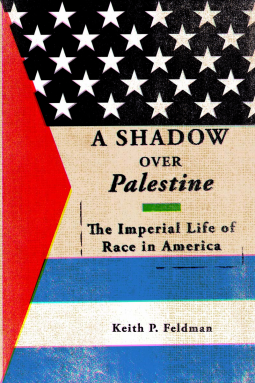
A Shadow over Palestine
The Imperial Life of Race in America
by Keith P. Feldman
This title was previously available on NetGalley and is now archived.
Send NetGalley books directly to your Kindle or Kindle app
1
To read on a Kindle or Kindle app, please add kindle@netgalley.com as an approved email address to receive files in your Amazon account. Click here for step-by-step instructions.
2
Also find your Kindle email address within your Amazon account, and enter it here.
Pub Date May 01 2015 | Archive Date May 08 2015
University of Minnesota Press | Univ Of Minnesota Press
Description
Upon signing the first U.S. arms agreement with Israel in 1962, John F. Kennedy assured Golda Meir that the United States had “a special relationship with Israel in the Middle East,” comparable only to that of the United States with Britain. After more than five decades such a statement might seem incontrovertible—and yet its meaning has been fiercely contested from the first.
A Shadow over Palestine brings a new, deeply informed, and transnational perspective to the decades and the cultural forces that have shaped sharply differing ideas of Israel's standing with the United States—right up to the violent divisions of our day. Focusing on the period from 1960 to 1985, author Keith P. Feldman reveals the centrality of Israel and Palestine in postwar U.S. imperial culture. Some representations of the region were used to manufacture “commonsense” racial ideologies underwriting the conviction that liberal democracy must coexist with racialized conditions of segregation, border policing, poverty, and the repression of dissent. Others animated vital critiques of these conditions, often forging robust if historically obscured border-crossing alternatives.
In this rich cultural history of the period, Feldman deftly analyzes how artists, intellectuals, and organizations—from the United Nations, the Black Panther Party, and the Association of Arab American University Graduates to James Baldwin, Daniel Patrick Moynihan, Edward Said, and June Jordan—linked the unfulfilled promise of liberal democracy in the United States with the perpetuation of settler democracy in Israel and the possibility of Palestine's decolonization.
In one of his last essays, published in 2003, Edward Said wrote, “In America, Palestine and Israel are regarded as local, not foreign policy, matters.” A Shadow over Palestine maps the jagged terrain on which this came to be, amid a wealth of robust alternatives, and the undeterred violence at home and abroad that has been unleashed as a result of this special relationship.
Advance Praise
"In this remarkable work Keith P. Feldman shows us the prolific and intractable connections between the production of race in the United States and the Israeli occupation of Palestine, making a solid case for the relevance of Palestine to the ongoing assaults of racial capitalism in the United States. The tremendous result is no less than a reenvisioning of the antiracist and anti-imperialist solidarities of the past in the service of culling the potential solidarities of the future. A tour de force."—Jasbir Puar, Rutgers University
Available Editions
| EDITION | Hardcover |
| ISBN | 9780816694501 |
| PRICE | $24.95 (USD) |



